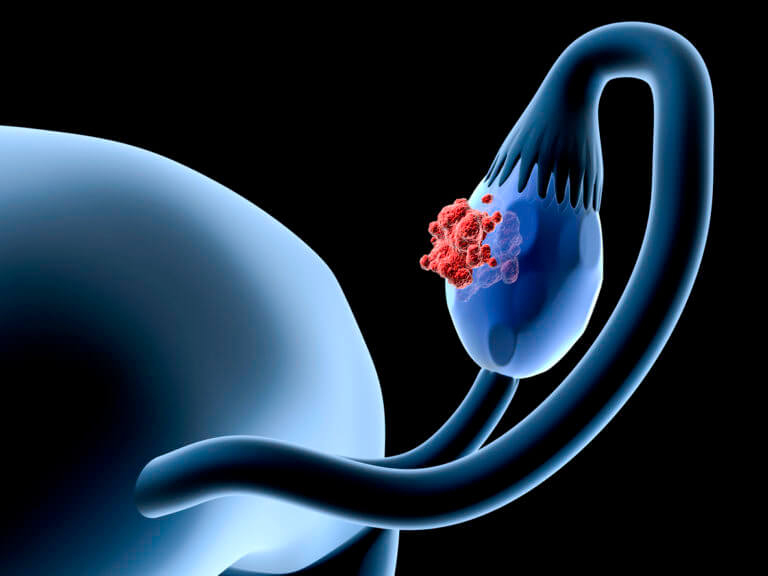
The ovaries are a unique and necessary part of the female reproductive system. There are two ovaries on either side of the uterus, responsible for producing eggs (ova) that travel through the fallopian tubes to the uterus. When the eggs are fertilized by sperm, a fetus can grow, and a baby can be conceived. Besides the reproductive process, the ovaries make the hormones estrogen and progesterone. There are many things that can go wrong in the ovaries, which is why it is important to pay any attention to any signs of trouble or pain.
Each year, about 22,000 women in the United States are diagnosed with ovarian cancer. While it is not the most common type of cancer among women, ovarian cancer ranks fifth in cancer deaths or those women diagnosed. Most women who develop ovarian cancer are over the age of 60. One of the most important things to help prevent and treat ovarian cancer is to get regular screenings and be on the lookout for tumors and other abnormal growth.
A tumor is a solid mass that can be either benign (non-cancerous) or malignant (cancerous). An ovarian tumor is a slow-growing abnormal mass of tissue or fluid-filled cyst. It is important to identify any noticeable symptoms, as this type of cancer in the ovaries often goes undetected until it has spread within the pelvis and the stomach. In other words, ovarian tumors are generally asymptomatic, meaning a woman rarely has any noticeable symptoms. Feelings of discomfort and pain may signify that there has been significant cancer growth, so time is of the essence for treatment.
At the later stages, ovarian cancer is more difficult to treat and can be fatal if it continues to go untreated. Symptoms of ovarian tumors include:
- Abdominal pain
- Trouble urinating or frequent urination
- Low back pain
- Pain with sexual intercourse
- Bad menstrual cramps during a woman’s periods
- Feeling full quickly after eating, or no appetite
- Nausea or vomiting
The causes of ovarian cancer and ovarian tumors are not well documented, so it’s not so easy to determine who might be more at risk. Some research suggests a correlation between certain risk factors and the development of ovarian tumors, such as: obesity, infertility, and a family history of ovarian tumors or ovarian cancer. Of course, if you have a family history of cancer it is important to stay on top of screening.
Since symptoms are rare in the early stages, tumors are normally spotted during routine physical exams, including a pelvic exam or Pap test. To avoid the progression and growth of ovarian tumors and cysts, women should always have routine pelvic exams to help ensure that changes in the ovaries are diagnosed as early as possible.
To learn more about ovarian tumors, including screening and how to treat them, call University OB/GYN Associates at (315) 464-5162 to request an appointment or request an appointment online.



